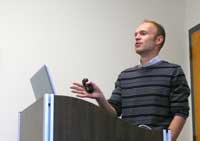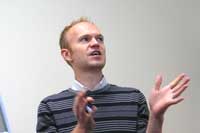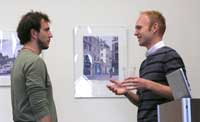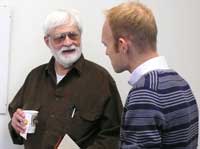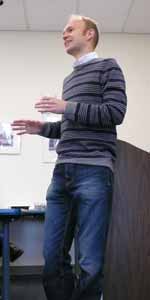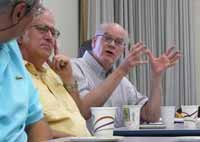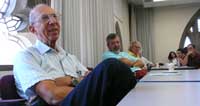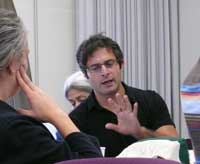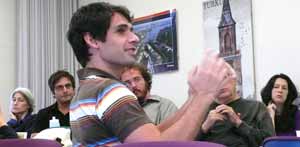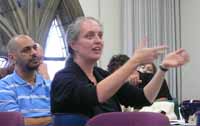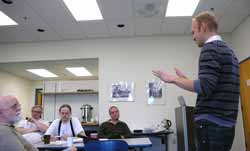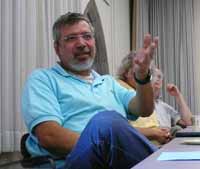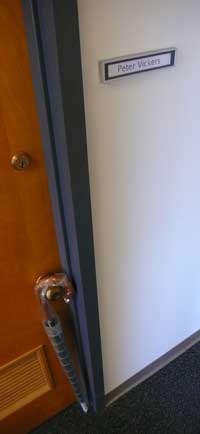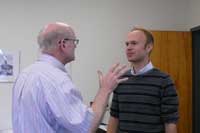

![]()
home
::: about
::: news
::: links
::: giving
::: contact
![]()
events
::: calendar
::: lunchtime
::: annual
lecture series
::: conferences
![]()
people
::: visiting fellows
::: postdoc fellows
::: senior fellows
::: resident fellows
::: associates
![]()
joining
::: visiting fellowships
::: postdoc fellowships
::: senior fellowships
::: resident fellowships
::: associateships
![]()
being here
::: visiting
::: the last donut
::: photo album
::: center home >> being here >> last donut? >> doing without theory |
Tuesday, 21 September 2010 We are used to the idea that philosophy of science is populated by intractable debates. Opponents with different views are joined in battle, rather like knights at a medieval joust. They both go through their repertoire of rehearsed assaults; and these are deflected by their opponent's heavy armor. There is much noise and fury, but nothing changes. Come back next year and it will all be the same. This expectation is so familiar that it has found a place in the literature. Blackwell's has a lovely little volume, Contemporary Debates in Philosophy of Science, that puts twelve pairs of modern knights through their paces. It is as timely a source today as it was over six years ago when it was published.
What Pete (as he calls himself) noticed was that both agreed on the details of almost everything claimed by the other side. The only real disagreement was over just what counts as classical electrodynamics. Frisch was certainly showing an inconsistency in something; and Belot and Muller certainly had good reason to claim consistency for something else. That was the whole problem. They were making claims about different things. It was rather like watching a heated debate over whether there are good croissants in Paris, only to find that one combatant is talking about Paris, France, and the other Paris, Arkansas. What dissolved this debate was the simple realization that we should stop talking about theories and focus our attention on the particular set of assumptions at issue. If we do that, the debate just dies. There's nothing left to dispute since all parties agree on the consistency of the various explicit sets.
The proposal Pete presented today was to take this idea and apply it to still more debates. We are to stop talking of theory in general or of particular theories like Newtonian physics or classical electrodynamics. We are instead to talk about a collection of assumptions that we establish to be interesting or important; and then we explore the collection's properties.
There was much more to be said. The proposal was to do away with an idea that has long been central to philosophy of science. Pete put some effort into showing the problems faced if we try to retain the notion of theory in the cases at hand. Still, he was urging drastic surgery and my sense was that this audience would be eager to offer second opinions.
John D. Norton |
